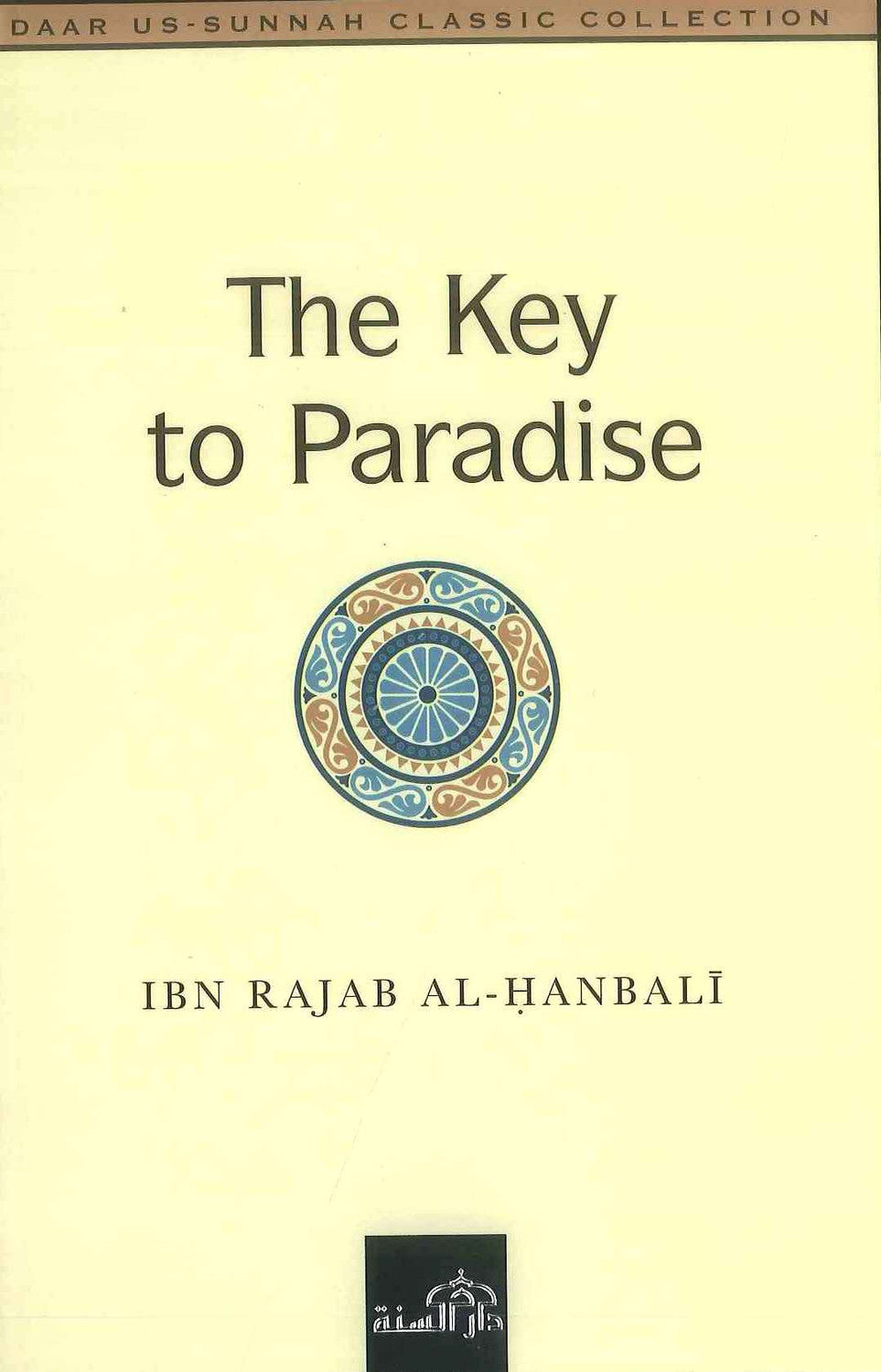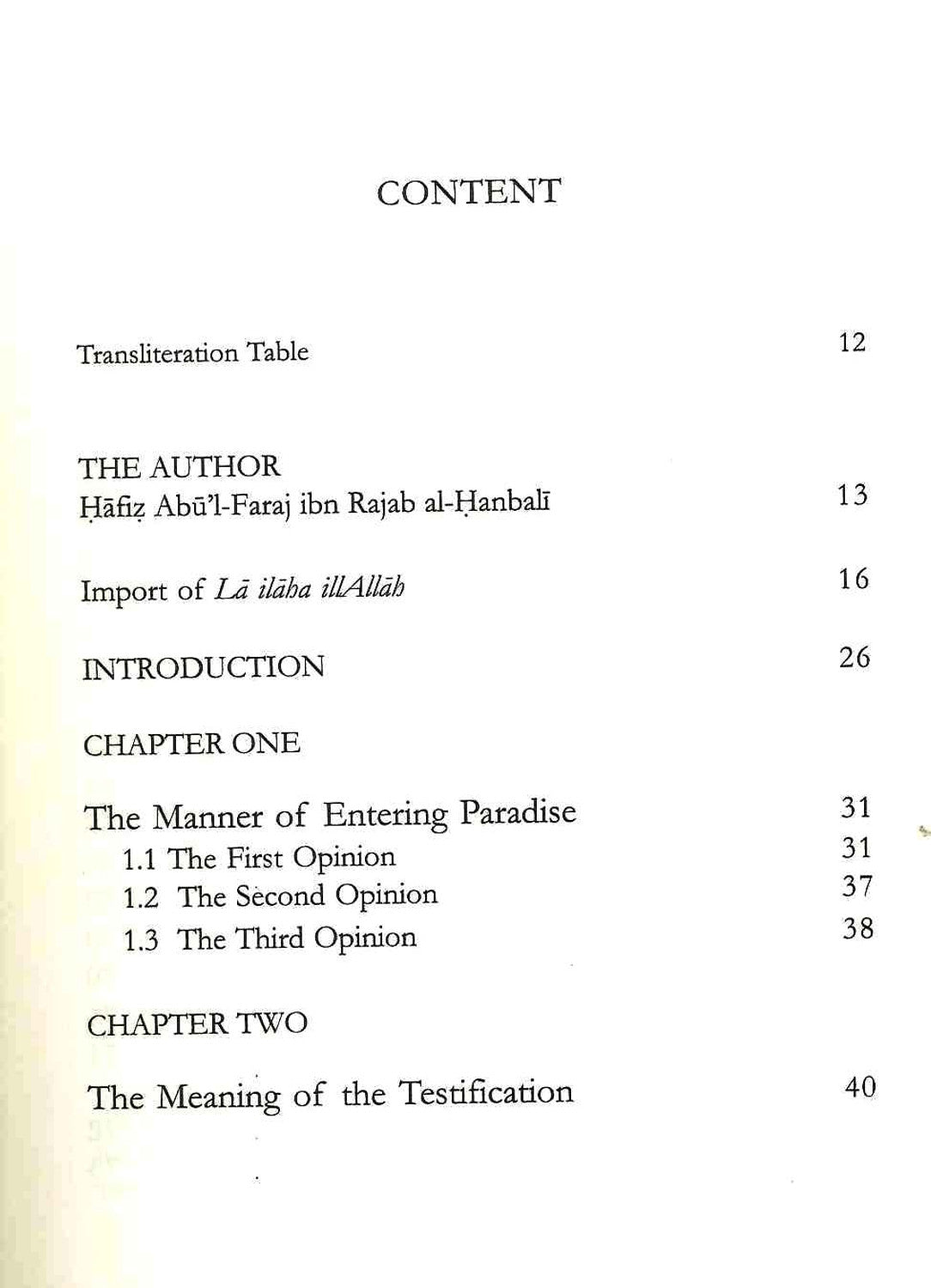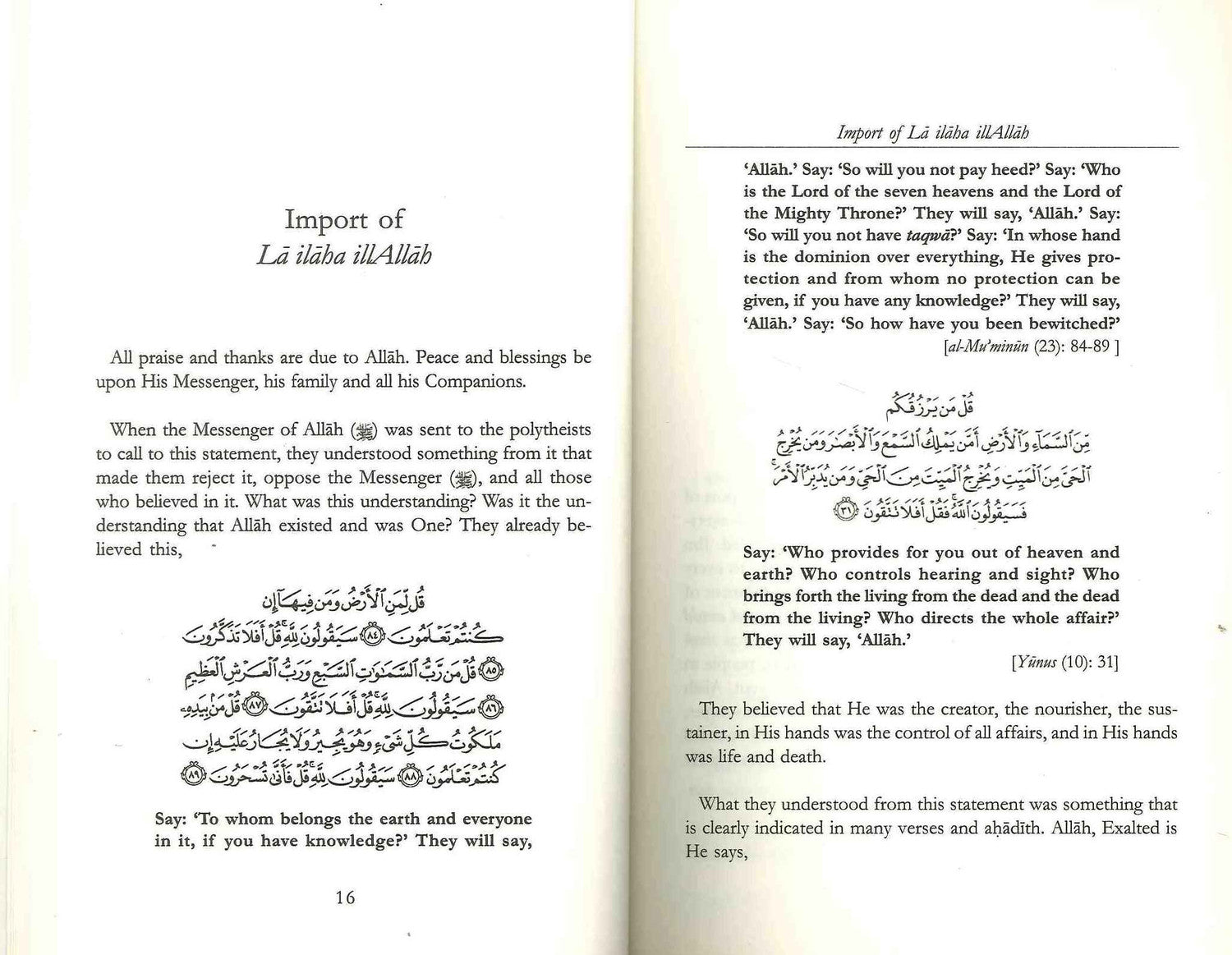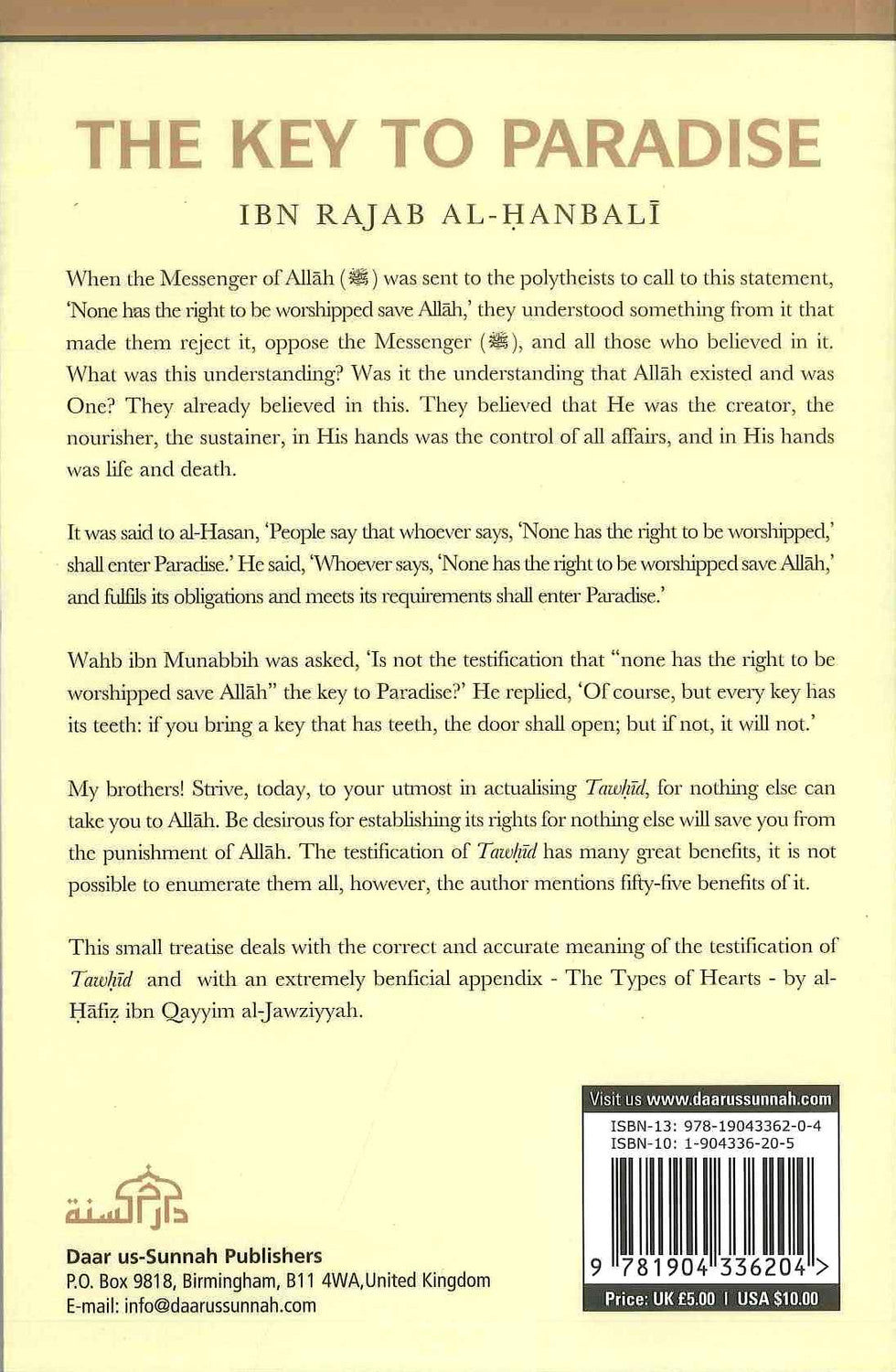The Key to Paradise | Daar Us-Sunnah
The Key to Paradise | Daar Us-Sunnah
Publisher:
Dar As Sunnah Publications
Author:
Ibn Rajab Al-Hanbali
Language:
English
Binding:
Soft Cover
Pages: 110
Size: A5 |5.8 x 8.3 in| 14.8x 21 cm
Couldn't load pickup availability
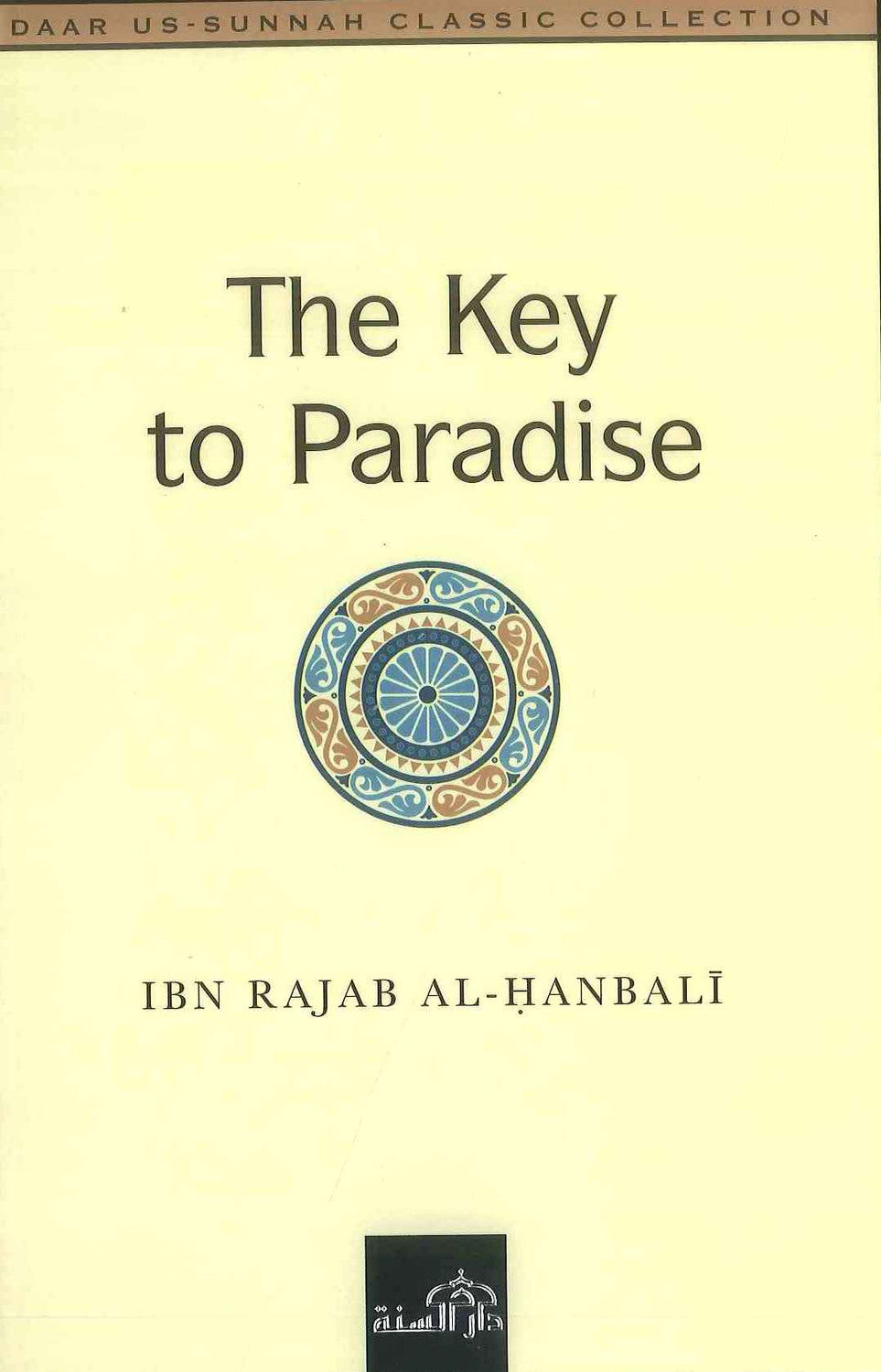
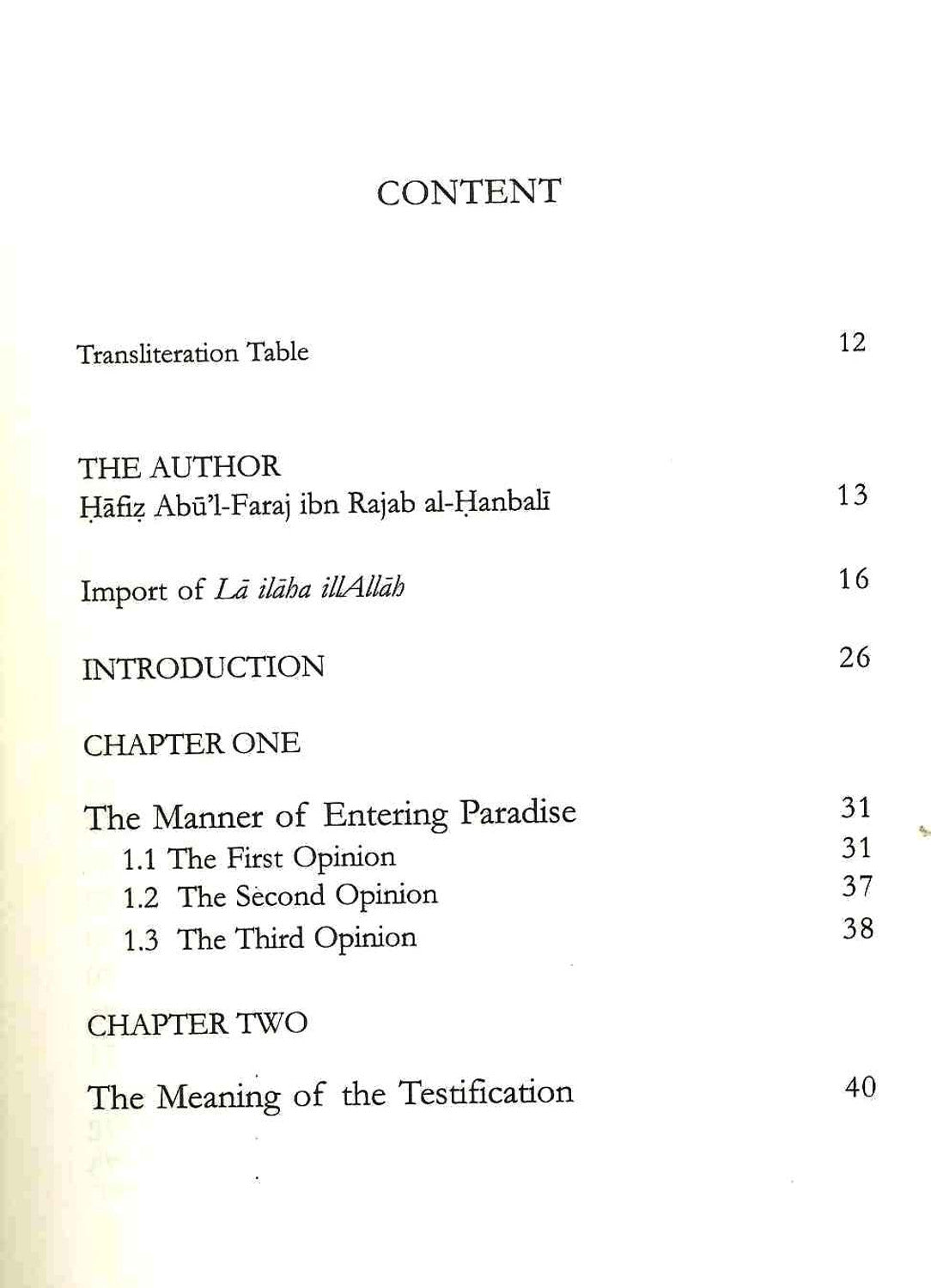
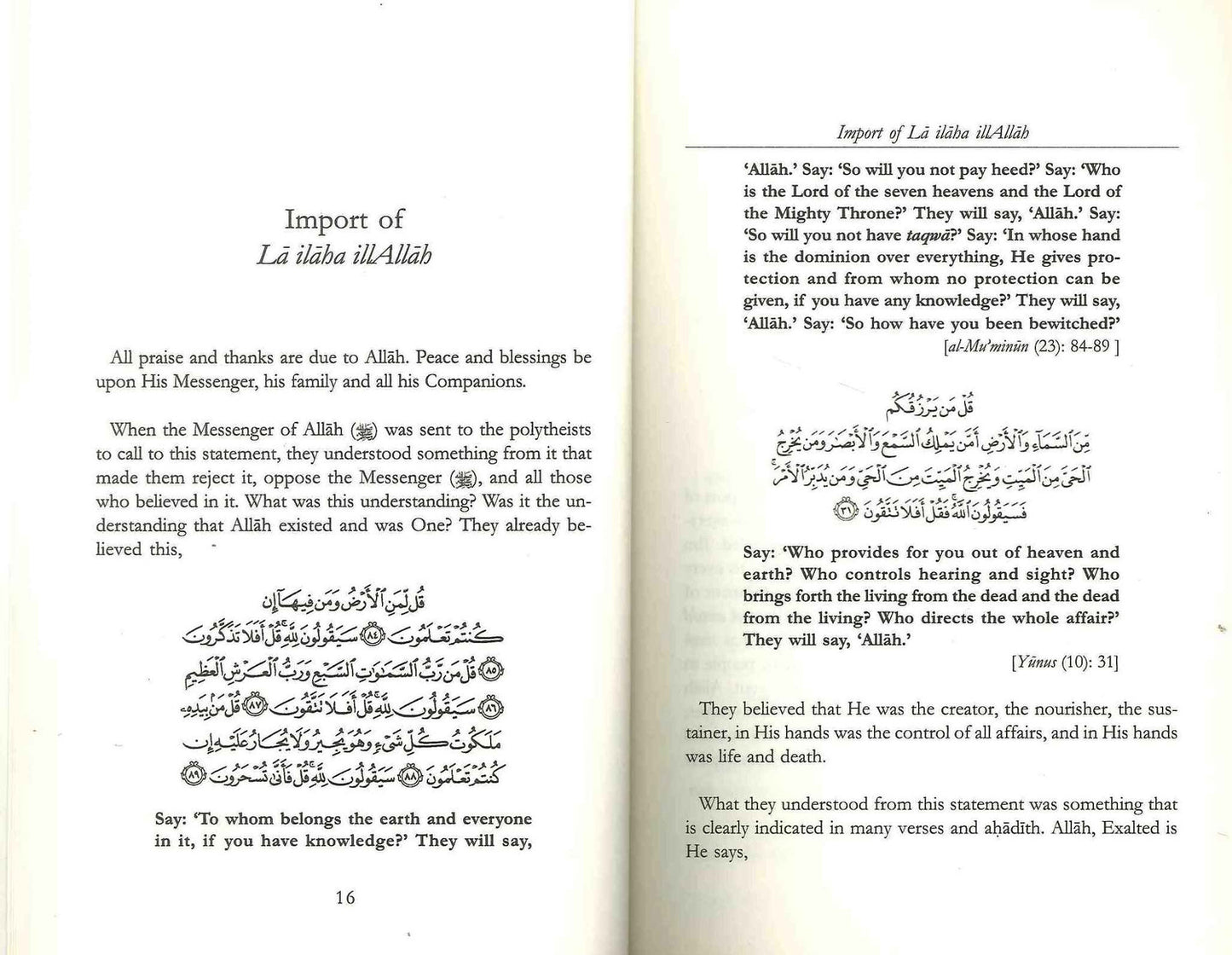
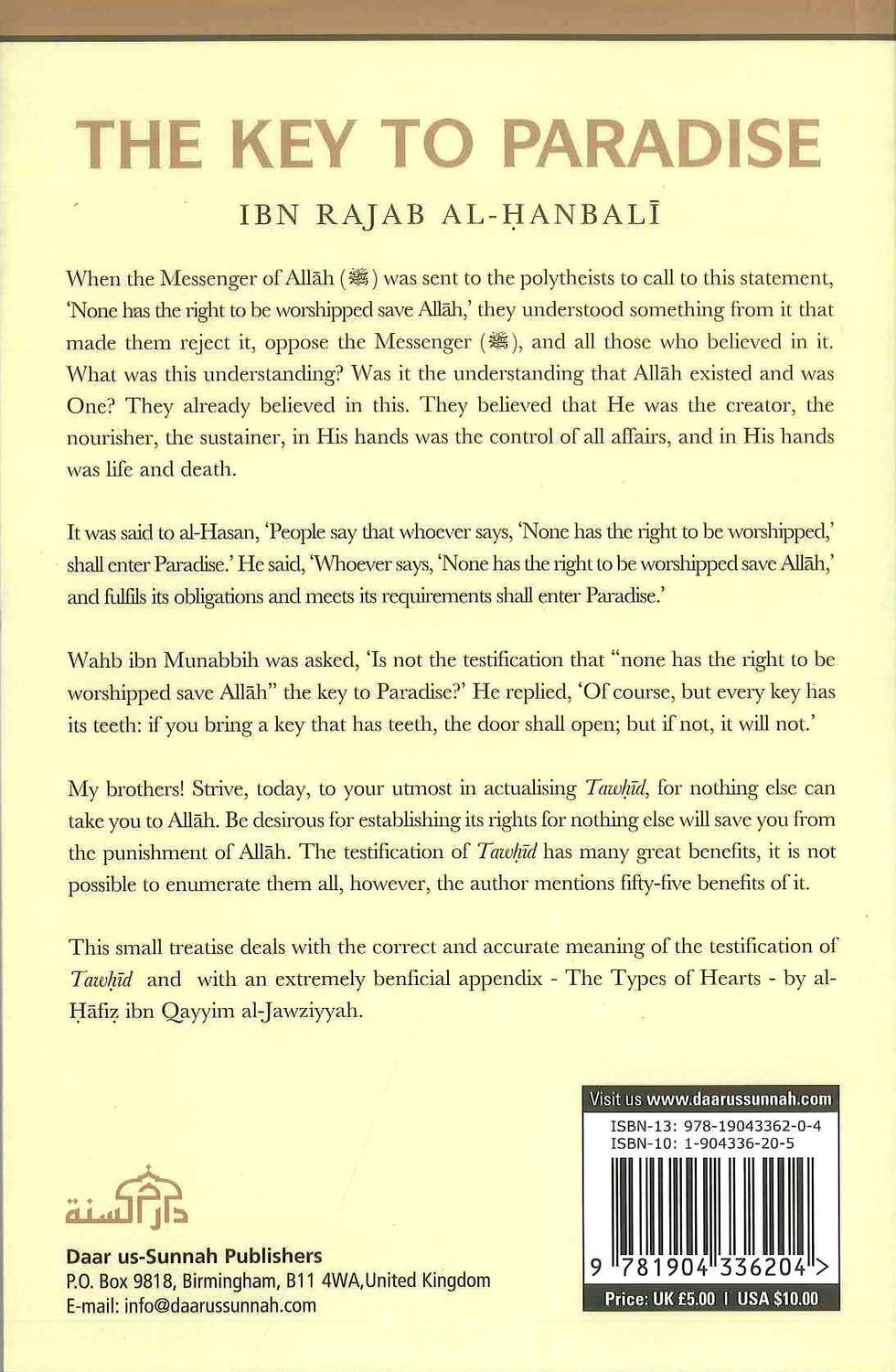
Collapsible content
Description of Book
The Key to Paradise
This work explores the deep-rooted concepts of Khushu—humility, gentleness, and heartfelt submission before Allah—and Inkisar, the breaking of the heart in devotion. Khushu is a softness of the heart that transforms a person’s actions, making them gentle and reverent in worship. The Prophet (peace be upon him) beautifully demonstrated this humility in prayer, saying, “My hearing, sigh, bones, and marrow are humbled to You.” True Khushu stems from recognizing Allah’s greatness, inspiring a sincerity that begins in the heart and reflects outwardly in one’s words and actions. This essential quality in Islam finds its highest expression in prayer (Salah), where believers connect deeply with Allah through reverence and humility.
Publisher
Dar As Sunnah Publications
Author
- Ibn Rajab Al-Hanbali
Sample Pages - Content
Page : 01
DAAR US-SUNNAH CLASSIC COLLECTION The Key to Paradise IBN RAJAB AL-HANBALĪ
Page : 02
Transliteration Table THE AUTHOR CONTENT 12 Hafiz Abu'l-Faraj ibn Rajab al-Hanbali 13 Import of La ilaha illAllah 16 INTRODUCTION CHAPTER ONE 26 20 The Manner of Entering Paradise 31 1.1 The First Opinion 31 1.2 The Second Opinion 1.3 The Third Opinion CHAPTER TWO The Meaning of the Testification 37 38 40
Page : 03
Import of La ilaha illAllah All praise and thanks are due to Allah. Peace and blessings be upon His Messenger, his family and all his Companions. When the Messenger of Allah () was sent to the polytheists to call to this statement, they understood something from it that made them reject it, oppose the Messenger (), and all those who believed in it. What was this understanding? Was it the un- derstanding that Allah existed and was One? They already be- lieved this, قُل لِّمَنِ الْأَرْضُ وَمَن فِيهَا إِن كُنتُمْ تَعْلَمُونَ سَيَقُولُونَ لِلَّهِ قُلْ أَفَلَا تَذَكَّرُونَ قُل مَن رَّبُّ السَّمَوَاتِ السَّبْع وَرَبُّ الْعَرْشِ الْعَظِيم سَيَقُولُونَ اللهُ قُلْ أَفَلَا تَتَّقُونَ الله قُلْ مَن سيده مَلَكُوتُ كُلِّ شَى و وَهُوَ يُجيرُ وَلَا يُجَارُ عَلَيْهِ إِن كُنتُمْ تَعْلَمُونَ الله سَيَقُولُونَ اللَّهِ قُلْ فَأَنَّى تُسْحَرُونَ الله Say: "To whom belongs the earth and everyone in it, if you have knowledge?' They will say, Import of La ilaha illAllah 'Allah.' Say: 'So will you not pay heed?' Say: 'Who is the Lord of the seven heavens and the Lord of the Mighty Throne?' They will say, 'Allah.' Say: 'So will you not have taqwa?' Say: 'In whose hand is the dominion over everything, He gives pro- tection and from whom no protection can be given, if you have any knowledge?' They will say, 'Allah.' Say: 'So how have you been bewitched?' [al-Mu'minun (23): 84-89] قُلْ مَن يَرْزُقُكُم منَ السَّمَاءِ وَالْأَرْضِ أَمَن يَمْلِكُ السَّمْعَ وَالْأَبْصَرَ وَمَن يُخْرِجُ الحَيَّ مِنَ الْمَيِّتِ وَيُخْرِجُ الْمَيْتَ مِنَ الْحَي وَمَن يُدير الأمر فَسَيَقُولُونَ اللَّهُ فَقُلْ أَفَلَا تَتَّقُونَ * Say: 'Who provides for you out of heaven and earth? Who controls hearing and sight? Who brings forth the living from the dead and the dead from the living? Who directs the whole affair?' They will say, 'Allah.' [Yunus (10): 31] They believed that He was the creator, the nourisher, the sus- tainer, in His hands was the control of all affairs, and in His hands was life and death. What they understood from this statement was something that is clearly indicated in many verses and aḥadīth. Allah, Exalted is He says, 16
Page : 04
THE KEY TO PARADISE IBN RAJAB AL-HANBALĪ When the Messenger of Allah () was sent to the polytheists to call to this statement, 'None has the right to be worshipped save Allah,' they understood something from it that made them reject it, oppose the Messenger (), and all those who believed in it. What was this understanding? Was it the understanding that Allah existed and was One? They already believed in this. They believed that He was the creator, the nourisher, the sustainer, in His hands was the control of all affairs, and in His hands was life and death. It was said to al-Hasan, 'People say that whoever says, 'None has the right to be worshipped,' shall enter Paradise.' He said, 'Whoever says, 'None has the right to be worshipped save Allah,' and fulfils its obligations and meets its requirements shall enter Paradise.' Wahb ibn Munabbih was asked, 'Is not the testification that "none has the right to be worshipped save Allah" the key to Paradise?' He replied, 'Of course, but every key has its teeth: if you bring a key that has teeth, the door shall open; but if not, it will not.' My brothers! Strive, today, to your utmost in actualising Tawhid, for nothing else can take you to Allah. Be desirous for establishing its rights for nothing else will save you from the punishment of Allah. The testification of Tawhid has many great benefits, it is not possible to enumerate them all, however, the author mentions fifty-five benefits of it. This small treatise deals with the correct and accurate meaning of the testification of Tawhid and with an extremely benficial appendix - The Types of Hearts - Hafiz ibn Qayyim al-Jawziyyah. by al- سنة Visit us www.daarussunnah.com ISBN-13: 978-19043362-0-4 ISBN-10: 1-904336-20-5 Daar us-Sunnah Publishers P.O. Box 9818, Birmingham, B11 4WA, United Kingdom E-mail: info@daarussunnah.com 9781904336204 Price: UK £5.00 I USA $10.00
Who is Ibn Rajab Al-Hanbali?
Ibn Rajab al-Hanbali (1335–1393 CE) was a prominent Islamic scholar from the Hanbali school of jurisprudence, renowned for his deep knowledge of hadith, fiqh (Islamic jurisprudence), and Islamic spirituality. He is best known for his works on the virtues of the Islamic faith, such as Lata'if al-Ma'arif (The Subtle Blessings), which highlights the significance of Islamic holidays, acts of worship, and recommended practices. Ibn Rajab was also an expert in the science of hadith and authored works that discussed the lives and biographies of prominent scholars and the importance of piety and sincerity in worship. His scholarship continues to be highly regarded, especially for its emphasis on spirituality and ethical conduct.

